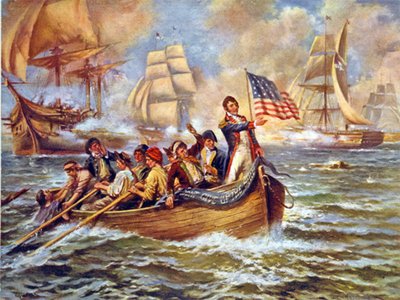
Such an insinuation was vexing for Americans, as it seemed to discount their victory over Britain in the Revolution. In the months before the war, Americans interpreted the ongoing British practice of stopping American merchant vessels as implying that the United States was not an equal in international relations. When Americans protested against the seizures, British authorities justified their practice by arguing that being a British subject took precedence over claims of American citizenship. The British argued that the sailors it impressed had escaped from their navy. About 10,000 Americans found themselves impressed into service during the Napoleonic Wars. As many as half of all seamen manning the Royal Navy were impressed. Facing harsher discipline and more dangerous conditions, as many as 100,000 Royal Navy service members died during that twenty-year period.īecause voluntary enlistments could never satisfy the demand for sailors, the British resorted to the use of press gangs to forcibly place men into service. At the same time, the life of a Royal Navy sailor became steadily more brutal.


The number of seaman needed to crew British ships nearly tripled between 17, from 36,000 to 114,000. Americans claimed that the British were none too careful about who they removed from the boarded vessels, and that free sailors were impressed into British service along with deserters.īritain’s insistence on pressing sailors into naval service sprang in part from its wars against Napoleon.

was the British practice of boarding American merchant ships in search of deserters from the Royal Navy. But American naval officers engaged in the same practice against British sailors.Ī primary cause of the 1812 war between Britain and the U.S. The practice angered Americans and was one cause of the War of 1812. British officers inspect a group of American sailors for impressment into the British navy, ca.


 0 kommentar(er)
0 kommentar(er)
